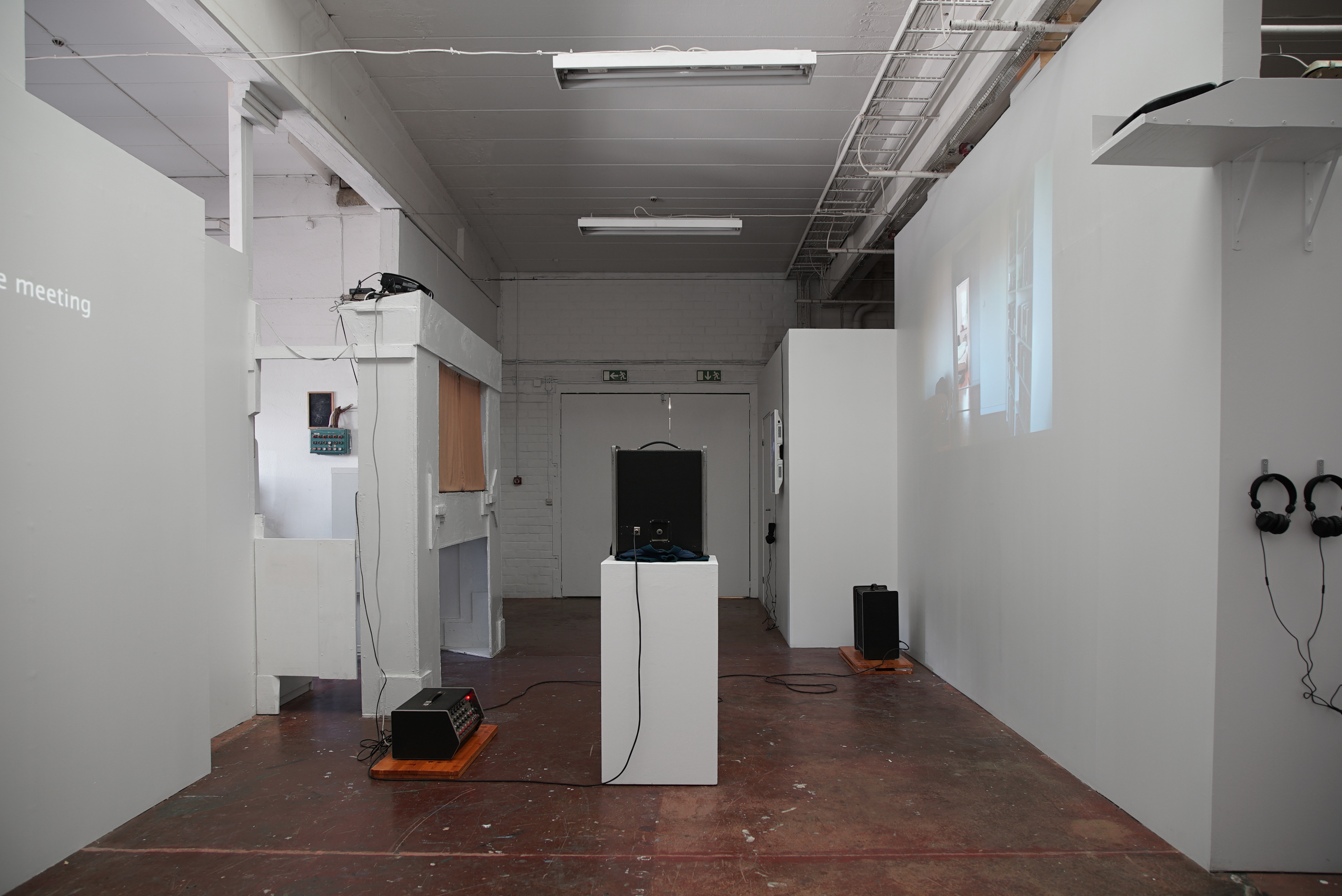Ordens Mening / The Word’s Sentence.
Lynn Anjou, Albin Skaghammar and Muyeong Kim.
June 2018








In this exhibition we show works by Lynn Anjou, Albin Skaghammar and Muyeong Kim where language, social codes and patterns come into focus in different ways. What is dealt with here is: how we meet each other through preconceptions, what these situations look like and what are some possible suggestions of how we can change this for the better. We might consider oppression through language, how we use language as an abuse of power, how it is made legal through the establishment of laws and social conduct.
In Skaghammar’s work we are told a story that reveals two men as they cross each other's paths whilst on a train in Sweden. Obvious misunderstandings and cultural differences separate them which is at first an endearing slapstick comedy of miscommunication. The act of storytelling is no longer innocent here but complicated and entangled by the judgements of the storyteller and ourselves. Both the men on the train seem afraid or scared of something, though the one on the floor lays completely still, whilst the others, in motion, seem full of prejudice towards each other. Outwardly they both present the view that everybody should be able to act as they like but neither of them manage to mediate this to the other, language is hidden but do thoughts tell the truth?
In Anjou’s work we see how people can be oppressed by a coded language, a language that is full of absent signifiers, that obfuscates dialogue and communication. Words and terms like; aktivitetsbaserad utredning (activity-based investigation), arbetsliknande uppgifter (work similar tasks), avresecentrum (departure centre), behovsprövning (needs test), dialogmöte (dialogue meeting), frivilligt samtal (voluntary talk), konfliktområde (conflict area), samhällsutmaningar (social challenges), språkplikt (language duty), säkra tredje länder (safe third countries) and åldersbestämning (age determination) are used to camouflage what the words actually carry with them; to naturalise the current state of the words. We can understand how these selected words have been weaponised and have come to hurt others. With a distasteful and unemotional precision these words are put into play in a struggle where a generic and ambiguous universalism seems to be the end goal.
In Kim’s work we meet Danish twigs that are said to always grow the same way from out the larger twig, the game is set. With that knowledge one knows the outcome of the game before it even started. Nu förstörde du min resa (Now you ruined my journey) claims one of the characters, but the viewer has no possibility to verify that statement, however we see what the body language says. Moving image demands a lot from our machines, something is given and taken away, like NASA changing the star signs from twelve to the thirteen. In the work they talk about the five stages of grief; denial, den här luktar konstigt (this smells funny), anger, compromise (bargaining), hans händer var väldigt varma (his hands where very warm), despair and the last one is acceptance; to unite. But uniting sometimes also means to kill the dialogue.

Celsius Projects, Celsiusgatan 45, 212 14 Malmö